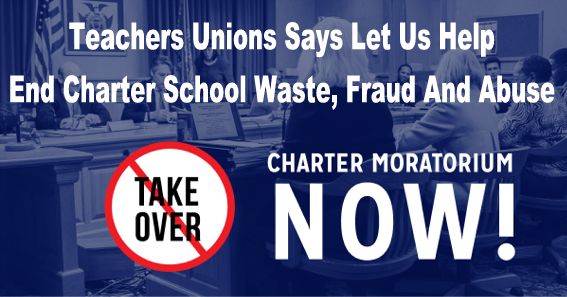Can Teachers Unions Bargain for Better -- or Fewer -- Charter Schools?
A growing number of local unions want a say in authorizing them.
One window of opportunity that teacher unions are exploring is charter authorizing—the process of opening, closing, and monitoring charter schools. Though laws vary from state to state, 90 percent of the nation’s roughly 1,000 charter authorizers are local school districts. (The other 10 percent include statewide boards, independent boards, and nonprofit organizations.) Someone looking to open a charter school would in most cases have to apply to a local school district for permission. If their application were approved, the school district would then be tasked with ensuring that the charter meets academic standards and all other relevant laws and regulations.
In recent years, more charter teachers have started to form unions at their schools. But since most are at-will employees who work on year-to-year contracts, the threat of retaliation presents a serious hurdle to unionization efforts, particularly since the charter sector is generally known for its union animus.
As a result, teachers unions representing educators at traditional public schools have started to explore how they might use their leverage at the bargaining table to make union organizing easier for their charter brethren.
“You can see a pathway when school districts are the authorizers, because the union bargains with school districts as employers, and could put proposals on the table around rules for charter authorization,” says Shaun Richman, a labor writer who directed the American Federation of Teacher’s charter organizing program from 2010 to 2015.
The first local to do this was the Cleveland Teachers Union. By the middle of the last decade, the Cleveland School District had sponsored several non-union charter schools. With a new round of contract negotiations coming up, the local teachers union wanted to figure out how they might insert their voice into their employer’s charter authorizing process. When bargaining began, the union sought the right to talk freely about organizing with teachers in any charter school authorized by their district. Though ultimately unsuccessful in winning this demand, the union did win language in its 2010 contract requiring their school district to remain neutral if teachers at any charter school it authorizes sought to unionize.
This neutrality language has proven useful, according to David Quolke, the Cleveland Teachers Union president. He says that when three Cleveland charter schools organized unions this past year, their anti-union charter operator, I Can, wanted the school district to intervene. “The employer was trying hard to stop the union, but the school district had to stay out of it,” Quolke says.
While his union did not get everything it wanted in 2010, Quolke says its “foot is now in the door” and he can envision pushing for more authorizing concessions in the future.
The Chicago Teachers Union took Cleveland’s efforts one step further in its recent round of collective bargaining. Rather than push for a commitment that their employer—the Chicago Public Schools—remain neutral, the union demanded that Can Teachers Unions Bargain for Better -- or Fewer -- Charter Schools?:

